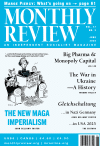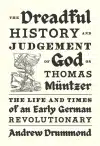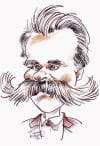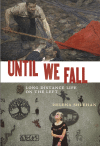Most westerners glimpsed the breakup of the Soviet Union at a great distance, through a highly distorted lens which equated the expansion of capitalism with the rise of global democracy. But there were those, like Helena Sheehan, who watched more keenly and saw a world turning upside down. In her new autobiographical history from below, Until We Fall, Sheehan shares what she witnessed first-hand and close-up, as hopes were raised by glasnost and perestroika, only to be swept away in the bitter and brutal counterrevolutions that followed.
In Until We
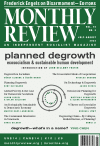
Writing at the end of the nineteenth century, Frederick Engels foresaw that without disarmament, Europe would soon be plunged into war. Modern weaponry has made the question of disarmament even more urgent. In this month’s “Notes from the Editors,” the editors put forward the objectives for a contemporary socialist disarmament strategy. | more…

Through this dramatic history by Stefan Heym, we become intimate with the story of the maverick and internationalist Karl Radek, known as the editor of the newspaper of record throughout the Soviet era, Isvestia. Beginning as Lenin’s companion at the dawning of the October Revolution, Radek later became Stalin’s favorite intellectual – only to find himself entangled in the great purges of the late 1930s and scripting his own trial. In this, his last historical novel, Heym reveals Radek as a brilliant Bolshevik journalist and politician who found himself at every turn of the wheel of fate. | more…

Gerhard Schrder, Angela Merkel, and the Liberal Roots of German Neofascism
In 2021, Angela Merkel’s fourth and last term as the chancellor of Germany will end. To understand Merkel’s domestic and foreign policy, one must understand the country she inherited. She came to power in 2005 following the first center-left government since 1982, the government of Gerhard Schröder, and was in the fortunate position of becoming chancellor after a coalition government of social democrats and Greens had done the devil’s bidding of implementing very unpopular neoliberal policies to the sole benefit of German capital and the rich. | more…
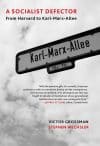
Victor Grossman’s A Socialist Defector: From Harvard to Karl-Marx-Allee is at once an exciting adventure story, an engaging autobiography of a radical opponent of U.S. imperialism, and a clear-headed assessment of the successes and failures of the German Democratic Republic (GDR, East Germany) at the onset of the Cold War until 1990, when its citizens voted to merge with the Federal Republic of Germany (FRG, West Germany). Most poignantly, Grossman compares the benefits workers gained in the GDR, the FRG, and even the United States during the Cold War. | more…
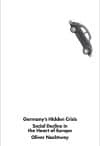
Germany is commonly perceived as a strong, dependable island amid a sea of gyrating European uncertainties, a down-to-earth, dependable ally in attempts by the better U.S. presidents to move the world forward as steadily as possible. For the past thirteen years, this view has been personified in the clear, undramatic words and deeds of Angela Merkel, Chancellor of Germany since 2005. Considerable doubts in this appraisal, with evidence that Germany, like every other country, has never been a monolith free of class conflict and other contradictions, are addressed in Oliver Nachtwey’s Germany’s Hidden Crisis: Social Decline in the Heart of Europe, out now from Verso Books. In describing West German, then all-German, developments from the end of the Second World War until the present, Nachtwey analyzes from the left, unafraid to utilize the ideas of Karl Marx as well as a host of more recent analysts of many shades. | more…

The circumstances that impelled Victor Grossman, a U.S. Army draftee stationed in Europe, to flee a military prison sentence were the icy pressures of the McCarthy Era. Grossman—a.k.a. Steve Wechsler, a committed leftist since his years at Harvard and, briefly, as a factory worker—left his barracks in Bavaria one August day in 1952, and, in a panic, swam across the Danube River from the Austrian U.S. Zone to the Soviet Zone. Fate—i.e., the Soviets—landed him in East Germany, officially the German Democratic Republic. There he remained, observer and participant, husband and father, as he watched the rise and successes, the travails, and the eventual demise of the GDR socialist experiment. | more…
